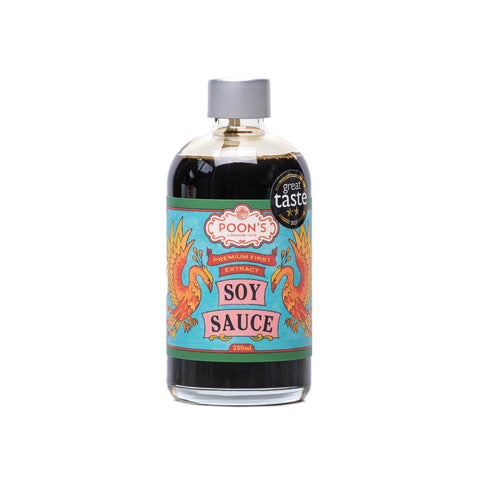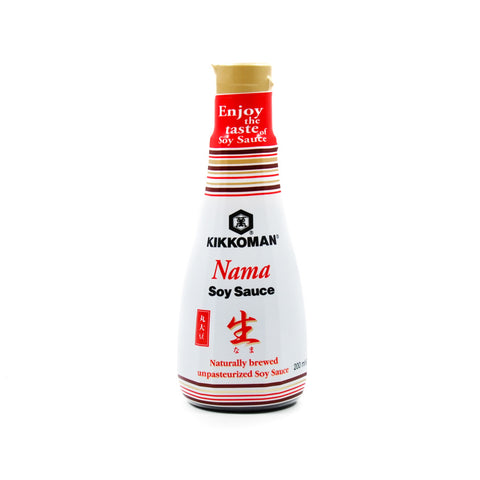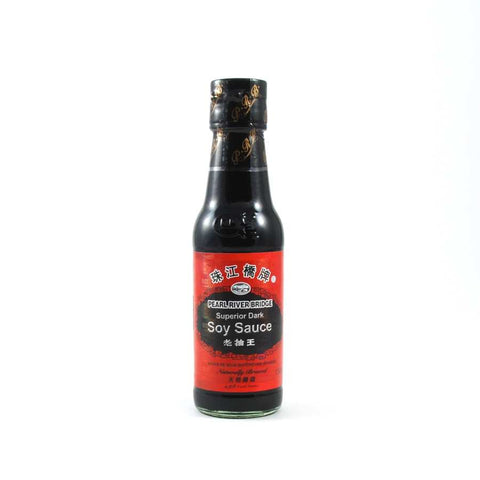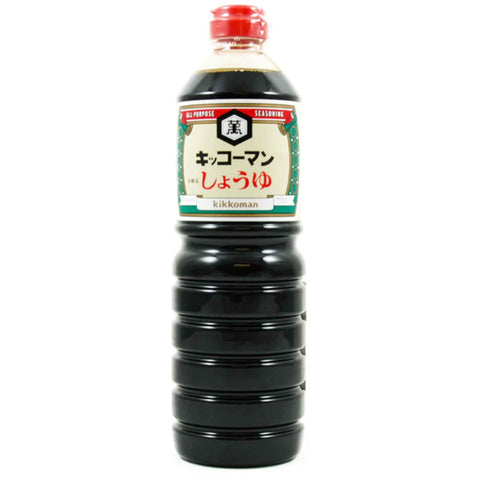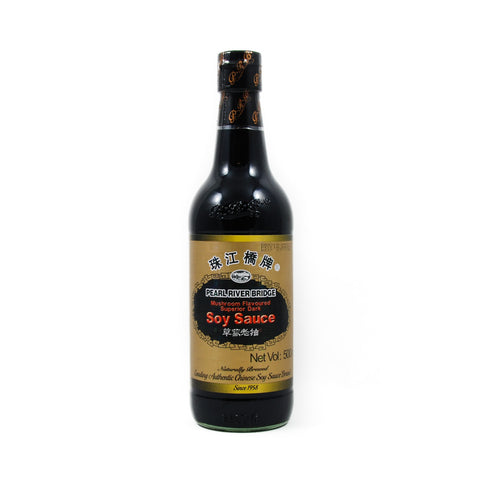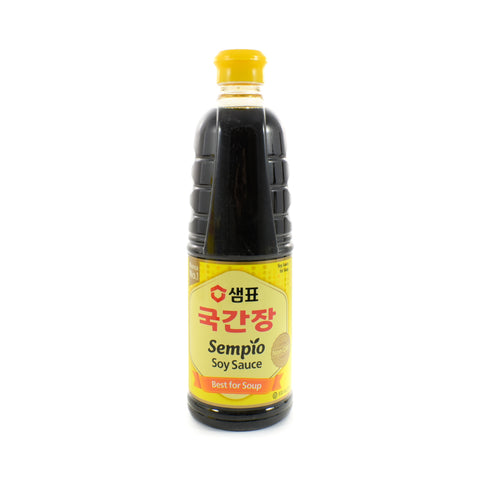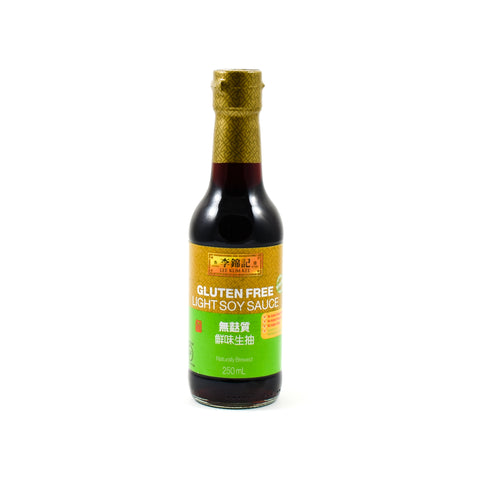A Guide to Choosing the Best Soy Sauce

Soy sauce is one of the best ways to add umami and depth of flavour to your cooking, and there are multiple varieties to choose from, each with their own complexities. Whether you plan on using soy sauce for dipping, cooking, colouring or seasoning, we can help you choose the best variety for your needs.
How is soy sauce made?
Naturally brewed soy sauce is traditionally made by soaking and steaming soybeans, which are then combined with roasted wheat and fermented in a brine solution for anywhere between 6 months to 6 years. First invented in China, soy sauce production now varies by country and there are key differences between varieties produced in China and Japan.
What is the difference between light and dark soy sauce?
Light soy sauce is produced from the first stage of the fermentation process and is slightly saltier. It is exclusively used for seasoning. Dark soy sauce is produced later in the fermentation process and sometimes has molasses added. It is therefore sweeter, thicker and richer in flavour. It can be used for dipping or adding colour.
What is the best soy sauce for stir fries?
Traditionally both light and dark soy sauces are used together in stir fried Chinese dishes. Add light soy sauce for seasoning and umami and a smaller amount of dark soy sauce for dark caramel colour and intensity.
Poon's soy sauce is made with organic soy beans, using a traditional recipe from southern Taiwan. The sauce is fermented in earthenware jars to ensure the purest, ‘beaniest’ soy sauce flavour possible.
Best for sushi
Unpasteurised soy sauce has a more subtle flavour and a sweeter aroma than other varieties. It’s the perfect pairing with sushi, as it won’t overpower the delicate flavour of the fish.
Best for fried rice
When cooking fried rice, you’ll want to use a darker soy sauce for sweeter caramel notes and to add that beautiful bronzed colour to your dish. A simple Chinese dark soy sauce will suffice.
Best for ramen
To make shoyu tare for your ramen broth we’d recommend using a Japanese soy sauce such as Kikkoman Shoyu, combining it with your chosen flavours such as dried mushrooms, miso or sake before adding to your ramen bowl.
Best for marinating
Mushroom soy sauce is great for adding umami depth with a mellower salty-sweet flavour. It also adds a rich colour to your marinade.
Best for seafood
Transparent or white soy sauce is best for white fish and seafood dishes where you want to see the true colour of the ingredients - it has a more subtle taste and therefore won’t overpower the delicate flavours of seafood, or discolour the flesh.
Best for soups and broths
Korean soy sauce is slightly saltier than Japanese or Chinese varieties and less sweet. Its light brown colour allows the rich colours of vegetables and other ingredients to shine.
Best gluten-free soy sauce
Lee Kum Kee’s soy sauce is made with cornstarch instead of wheat, which means it’s gluten free. A light style of soy sauce, this is a good all rounder for adding flavour and seasoning to dishes.
Frequently Asked Questions
What is soy sauce made from?
Soy sauce is usually made from four main ingredients; soybeans, wheat, salt and water.
Is soy sauce gluten-free?
While soy sauce has ‘soy’ in the name it is made with wheat so it’s not actually gluten free. There are gluten-free options available however, such as Lee Kum Kee’s GF Soy Sauce. Japanese Tamari Soy Sauce is also naturally gluten free, as it is made by fermenting miso.
Is soy sauce vegetarian or vegan?
Soy sauce is made with entirely plant-based products so it is vegetarian and vegan.
If you're making a Chinese dish, choosing a good soy sauce is crucial to achieving authentic flavour. Light soy works wonders for seasoning, adding that savoury depth to stir-fries or dipping sauces.
For those wanting to bring out more flavour, light soy sauce provides a strong, balanced seasoning. Its salty profile enhances dishes like fried rice or noodles, making it a versatile addition to any kitchen. When the recipe calls for a simple yet tasty touch, light soy should be your go-to.
For a darker impact (but not necessarily stronger flavour), dark soy sauce is the ideal choice. It is often used for braised dishes and marinades, where a rich brown colour adds to the overall presentation.
Many Chinese chefs recommend using a mix of both light soy and dark soy, with other flavourings, to achieve the perfect balance of sweetness and saltiness in traditional recipes.
Whether you're preparing a stir-fry or experimenting with vegetarian dishes, adding the right soy sauces will elevate your cooking to the next level.
For more inspiration, why not try cooking Chinese stir fry with beancurd knots, broccoli and mushrooms, or make Korean sticky pork ribs.
